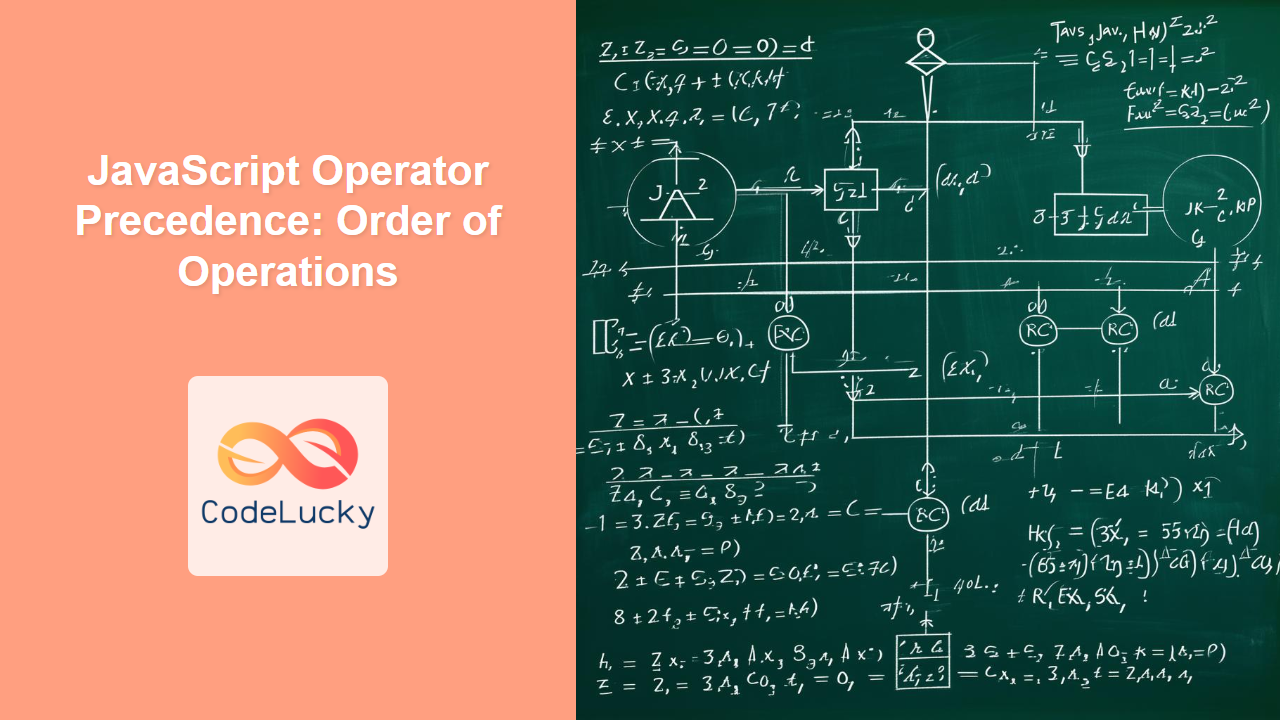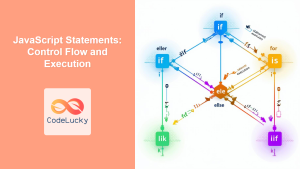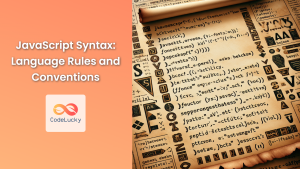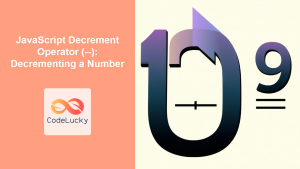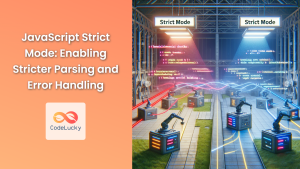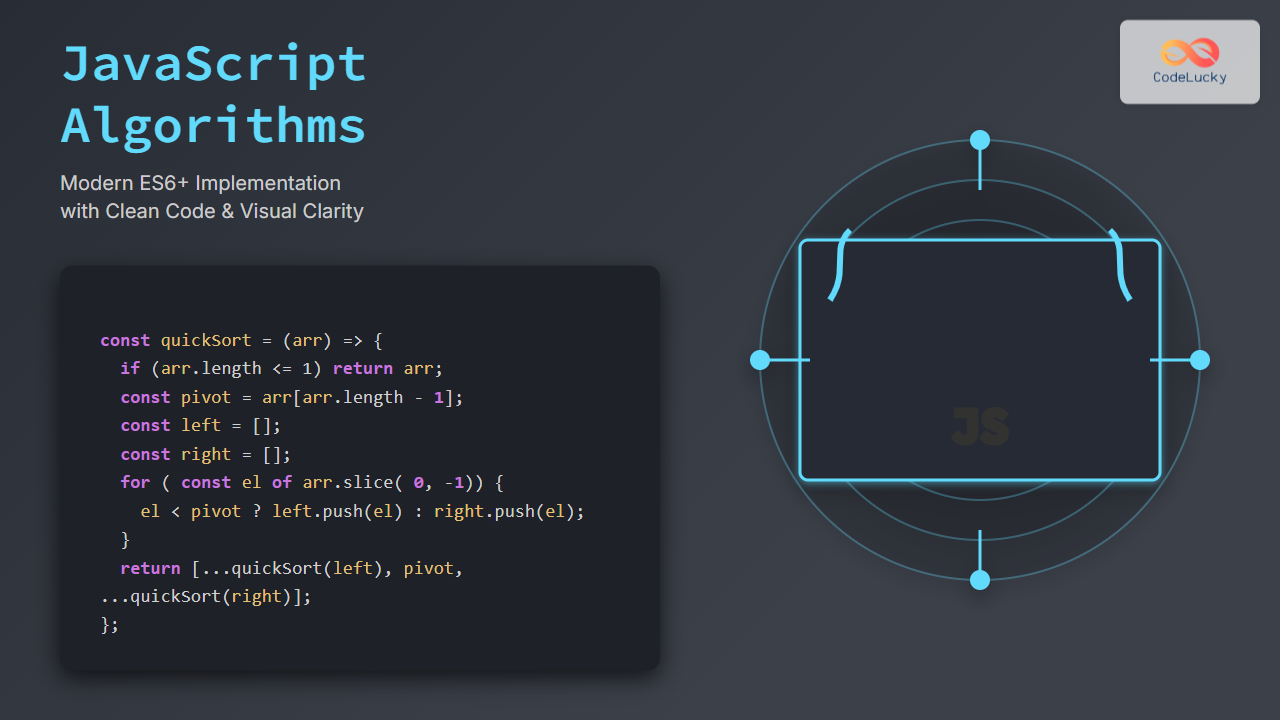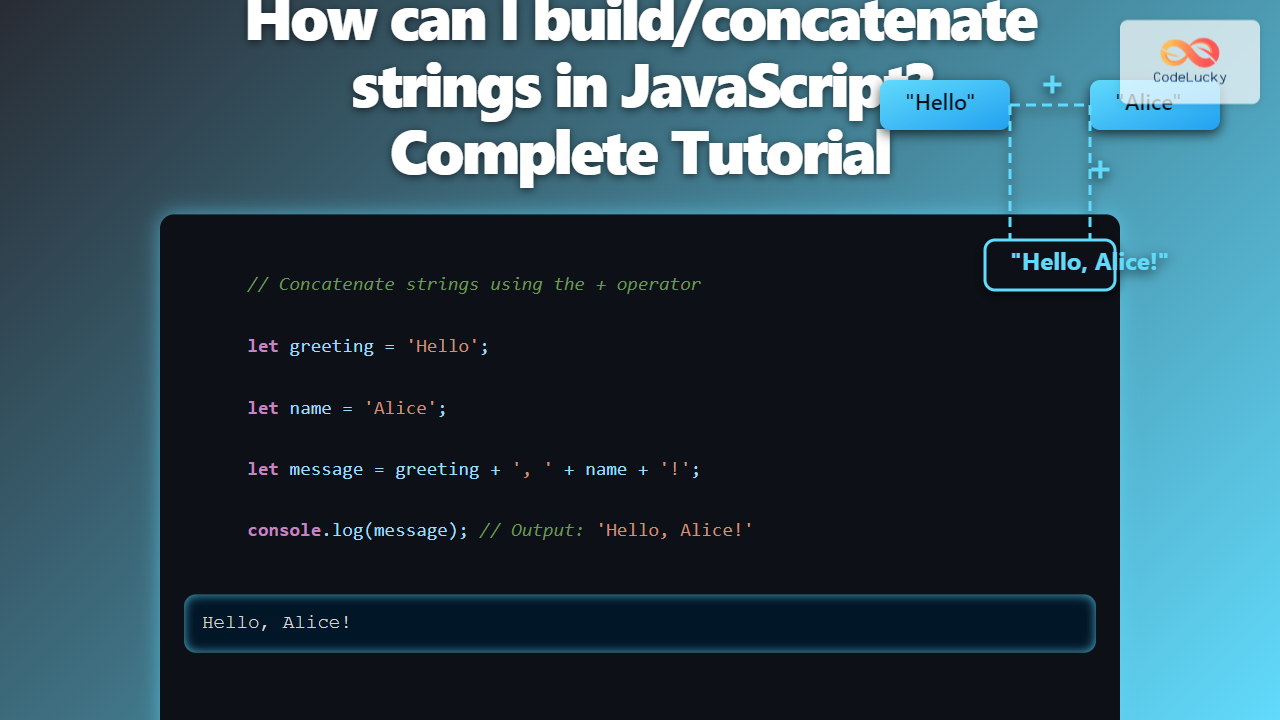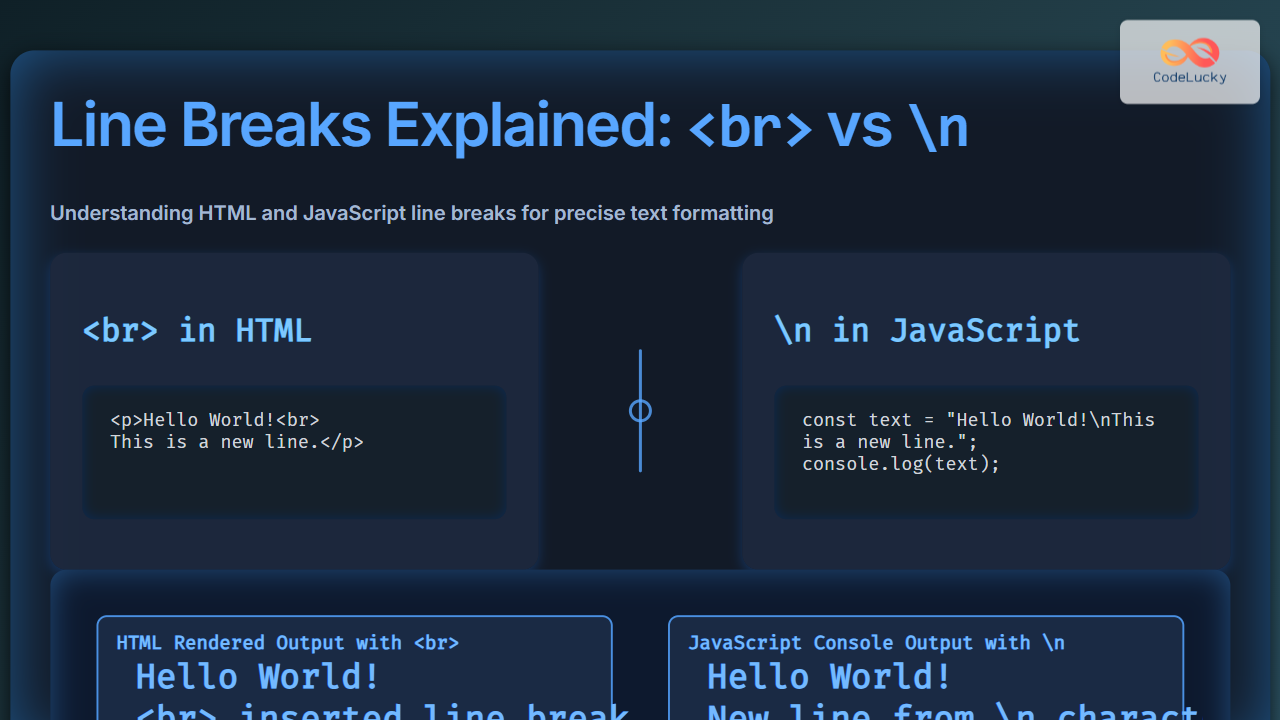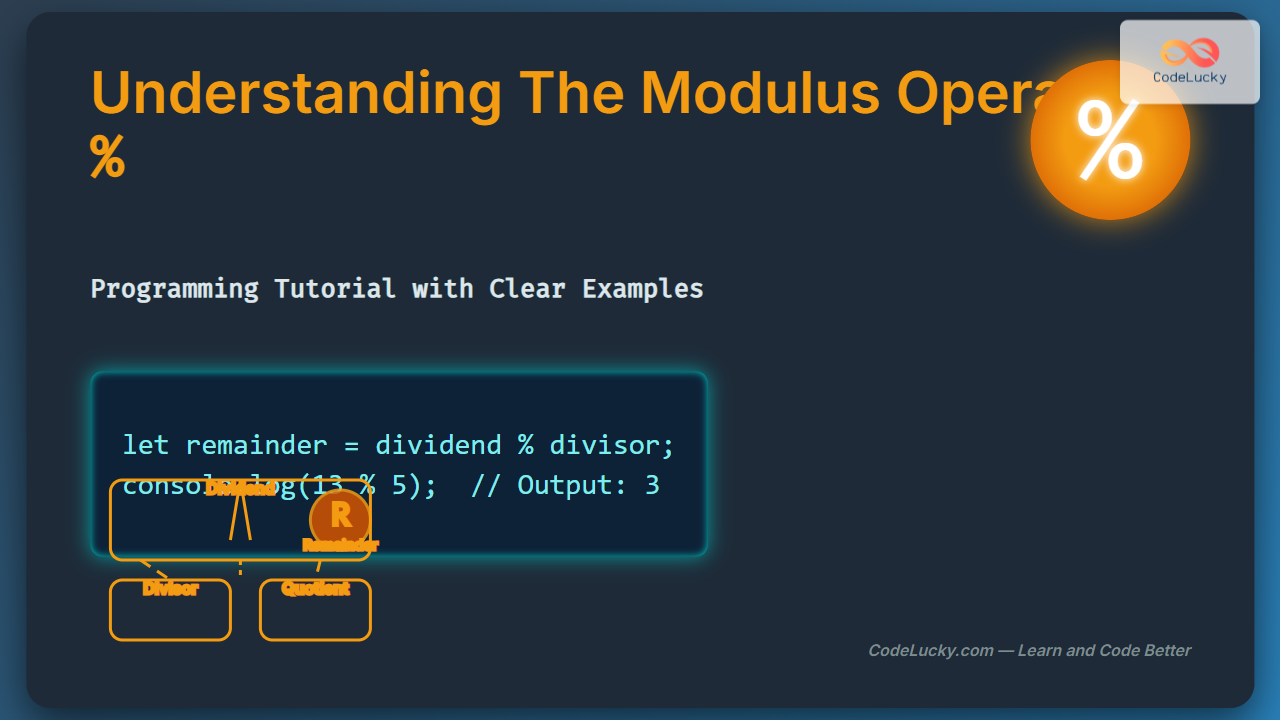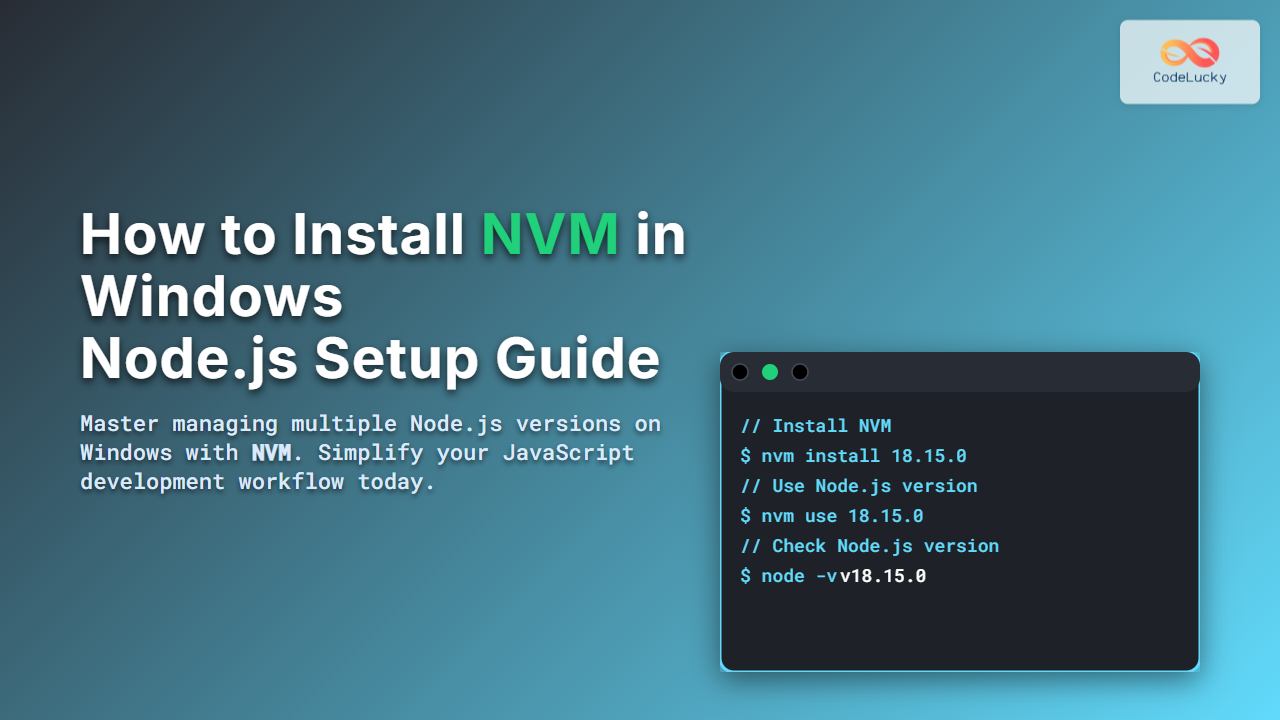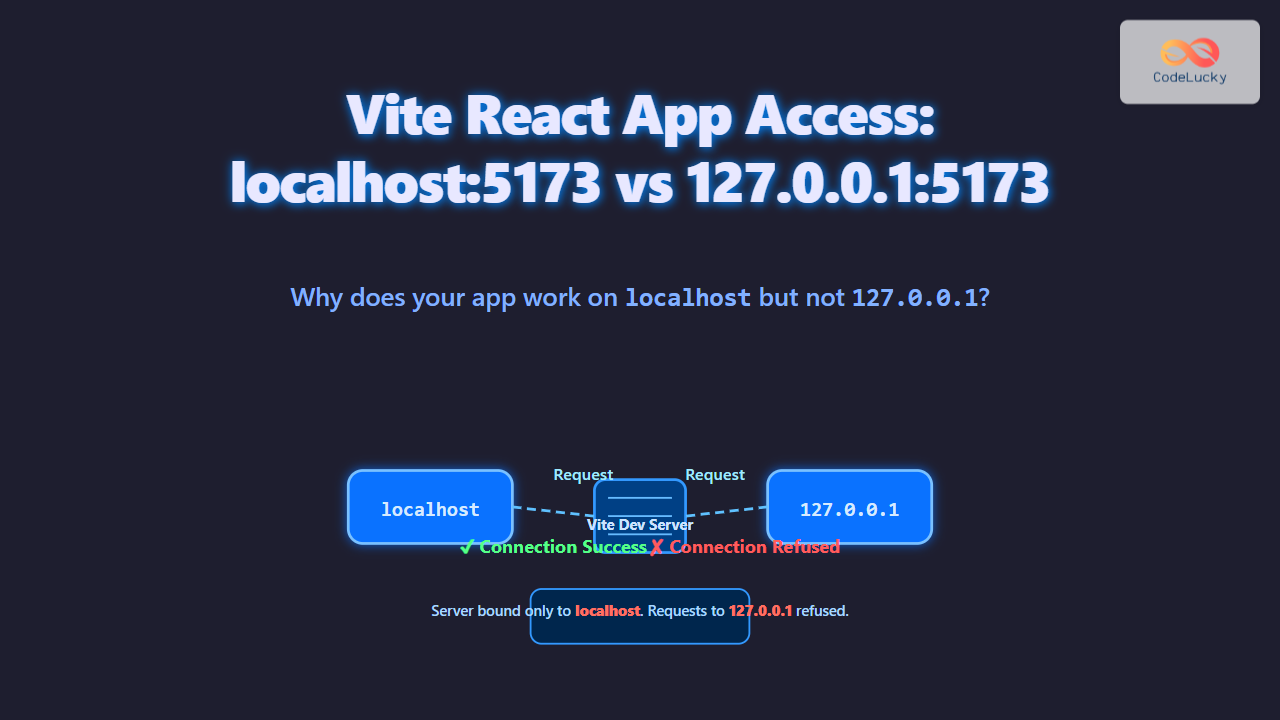JavaScript Operator Precedence: Mastering Order of Operations
In JavaScript, operator precedence determines the order in which operators are applied in an expression. Understanding operator precedence is crucial for writing code that behaves as expected. This guide provides a comprehensive overview of JavaScript operator precedence, explaining how it works and how to use parentheses to control the order of operations.
What is Operator Precedence?
Operator precedence is a set of rules that dictate the order in which JavaScript operators are evaluated in an expression. Operators with higher precedence are evaluated before operators with lower precedence. When operators have the same precedence, the associativity (left-to-right or right-to-left) determines the order of evaluation.
Why is Operator Precedence Important?
Incorrectly assuming the order of operations can lead to unexpected results and bugs in your code. Understanding operator precedence ensures that your expressions are evaluated correctly, leading to predictable and accurate outcomes.
Operator Precedence Table
JavaScript operators are categorized into precedence groups. Here’s a simplified table highlighting common operators and their precedence levels (from highest to lowest):
| Precedence | Operator Type | Operators | Associativity |
|---|---|---|---|
| 20 | Grouping | `()` | N/A |
| 18 | Postfix Increment/Decrement | `++`, `–` | N/A |
| 17 | Prefix Increment/Decrement, Unary | `++`, `–`, `+`, `-`, `!`, `~` | Right-to-left |
| 16 | Multiplicative | `*`, `/`, `%` | Left-to-right |
| 15 | Additive | `+`, `-` | Left-to-right |
| 14 | Bitwise Shift | `<<`, `>>`, `>>>` | Left-to-right |
| 13 | Relational | `<`, `<=`, `>`, `>=`, `instanceof`, `in` | Left-to-right |
| 12 | Equality | `==`, `!=`, `===`, `!==` | Left-to-right |
| 11 | Bitwise AND | `&` | Left-to-right |
| 10 | Bitwise XOR | `^` | Left-to-right |
| 9 | Bitwise OR | `|` | Left-to-right |
| 8 | Logical AND | `&&` | Left-to-right |
| 7 | Logical OR | `||` | Left-to-right |
| 3 | Conditional (Ternary) | `? :` | Right-to-left |
| 3 | Assignment | `=`, `+=`, `-=`, `*=`, `/=`, `%=`, `<<=`, `>>=`, `>>>=`, `&=`, `^=`, `|=` | Right-to-left |
| 1 | Comma | `,` | Left-to-right |
Examples Demonstrating Operator Precedence
Let’s illustrate operator precedence with several examples.
Arithmetic Operators
Multiplication and division have higher precedence than addition and subtraction.
let result1 = 5 + 3 * 2; // Multiplication is done before addition
console.log(result1); // Output: 11
let result2 = (5 + 3) * 2; // Parentheses change the order
console.log(result2); // Output: 16
Assignment Operators
Assignment operators have low precedence, so the right-hand side of the expression is evaluated before the assignment.
let x = 10;
let y = 5;
x = x + y * 2; // Multiplication, then addition, then assignment
console.log(x); // Output: 20
Logical Operators
Logical AND (&&) has higher precedence than logical OR (||).
let a = true;
let b = false;
let c = true;
let result3 = a || b && c; // AND is done before OR
console.log(result3); // Output: true
let result4 = (a || b) && c; // Parentheses change the order
console.log(result4); // Output: true (depends on a and c)
Increment and Decrement Operators
Postfix increment/decrement operators have higher precedence than most other operators, but their value is only updated after the expression is evaluated.
let i = 5;
let result5 = i++ + 2; // Postfix increment: i is incremented after the expression is evaluated
console.log(result5); // Output: 7
console.log(i); // Output: 6
let j = 5;
let result6 = ++j + 2; // Prefix increment: j is incremented before the expression is evaluated
console.log(result6); // Output: 8
console.log(j); // Output: 6
Using Parentheses to Control Precedence
Parentheses () have the highest precedence. They can be used to override the default operator precedence, ensuring that expressions are evaluated in the desired order.
let result7 = (2 + 3) * 4; // Addition is done before multiplication due to parentheses
console.log(result7); // Output: 20
let result8 = 2 + 3 * 4; // Multiplication is done before addition by default
console.log(result8); // Output: 14
Complex Expressions
Consider a more complex expression:
let m = 2;
let n = 3;
let o = 4;
let result9 = m + n * o - o / m; // Multiplication and division first, then addition and subtraction
console.log(result9); // Output: 12.0
let result10 = (m + n) * (o - o) / m; // Parentheses dictate the order
console.log(result10); // Output: 0
Common Pitfalls and How to Avoid Them
- Misunderstanding Arithmetic Order: Always use parentheses to clarify the order of arithmetic operations, especially when mixing addition/subtraction with multiplication/division.
- Logical Operator Confusion: When combining
&&and||, use parentheses to make the logic explicit and avoid ambiguity. - Increment/Decrement Side Effects: Be mindful of when postfix and prefix increment/decrement operators are applied, as they can cause unexpected behavior if not carefully considered.
Best Practices for Operator Precedence
- Use Parentheses for Clarity: Even when not strictly necessary, parentheses can make your code easier to read and understand.
- Break Down Complex Expressions: Divide complex expressions into smaller, more manageable parts to improve readability and reduce the risk of errors.
- Know the Default Precedence: Familiarize yourself with the common operator precedence rules to write more efficient and predictable code.
- Test Your Code: Always test your code thoroughly to ensure that expressions are evaluated correctly and produce the expected results.
Real-World Applications
Understanding operator precedence is crucial in various real-world scenarios, such as:
- Mathematical Calculations: Ensuring accurate results in financial calculations, scientific simulations, and data analysis.
- Conditional Logic: Creating complex conditional statements with predictable behavior in control systems, game development, and user interfaces.
- Data Processing: Manipulating and transforming data correctly in data pipelines, ETL processes, and API integrations.
Conclusion
Mastering JavaScript operator precedence is essential for writing reliable and maintainable code. By understanding the order of operations and using parentheses effectively, you can ensure that your expressions are evaluated correctly, leading to predictable and accurate outcomes. Always strive for clarity and test your code thoroughly to avoid common pitfalls and write robust JavaScript applications. 🚀

